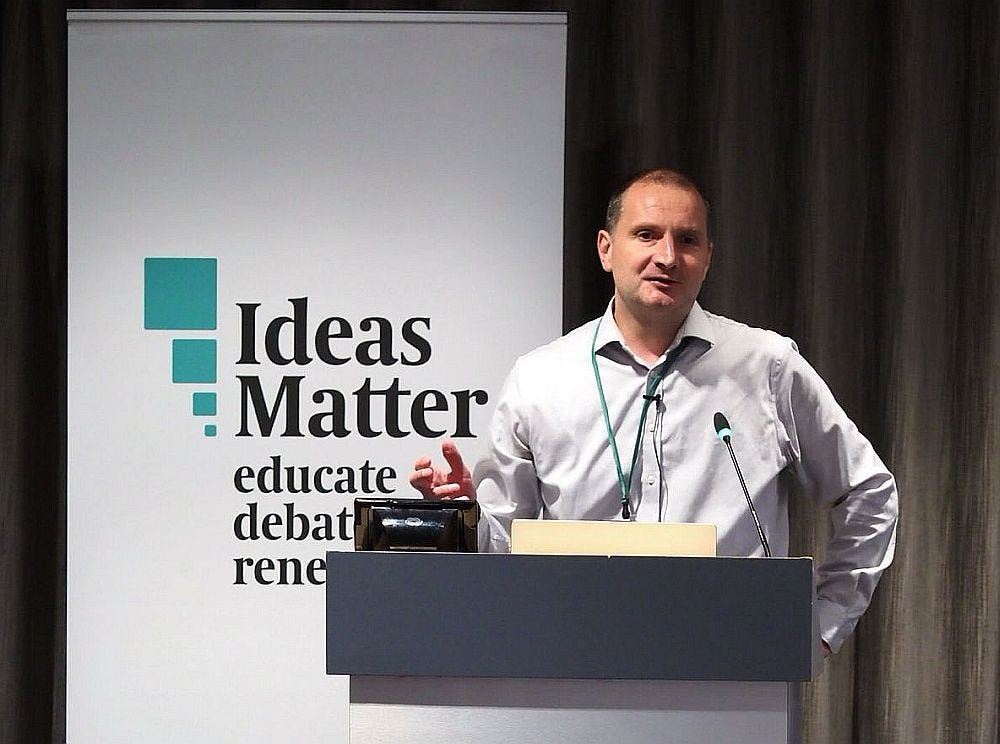The hollowing out of citizenship
After multiculturalism, what does it mean to be a citizen today?
From worries over the Boriswave to the small-boats crisis, or Suella Braverman’s now infamous comment that she will never truly be English, the questions of citizenship, migration and borders have become especially urgent.
As I’ve written in these pages before, there is a widespread sense that migration and state multiculturalism have hollowed out British citizenship to mean little more than possessing a piece of paper. In response, many now insist on recovering a less ‘civic’ and more ‘ethnic’ conception of citizenship. But we shouldn’t concede the point – while defining citizenship in ethnic terms seems less open to hollowing-out, it is as evasive on the fundamental political question of what we do with our citizenship as the multicultural version is.
At an event this summer called The Academy, I invited Dolan Cummings, a writer and author, to reflect on these themes. In a brilliant and wide-ranging talk, Dolan attempted to understand the many faces of citizenship. He asks: is it a legal label, a shared fate or a political responsibility?
We are delighted to reproduce the opening section of his talk, which he has published in full over on his own Substack (which I recommend you subscribe to).
Jacob Reynolds
Three kinds of belonging
Meaningful citizenship is richer and more complex than either blood or bureaucracy
We are used to the stereotype of the bad immigrant. Even if he is legal, he enjoys the protection of an acquired passport and the welfare state without contributing anything to society or even learning the language properly. During heated arguments, this figure is often countered with that of the bad native, who also enjoys the munificence of the state without lifting a finger (and is no doubt far from being God’s gift to his native tongue), and yet looks down even on good immigrants as somehow less deserving. To be a good citizen, then, it is not enough to hold a passport, nor even to belong unequivocally to the native tribe. So what exactly is it? That depends on what we mean by citizenship.
The Bible tells us the Apostle Paul had no fewer than three distinct citizenships. When he is arrested while preaching in Jerusalem and accused of being an Egyptian rabble-rouser, Paul protests that he is a Jew from Tarsus in Cilicia, and thus, ‘a citizen of no mean city’ (Acts 21:39). We can detect some civic pride in his hometown here. When he is threatened with flogging, though, he points out that he is also a Roman citizen (Acts 22:25). At this stage, he has never actually been to Rome. It’s unlikely that he spoke any Latin and he certainly did not follow the Roman religion; citizenship is a legal privilege he inherited from his father, who probably bought it. But, so to speak, it is a useful passport to hold, because it means he cannot be mistreated. Finally, writing to the church in the Roman colony of Philippi, he reminds his fellow Christians that, as much as they might benefit from Roman citizenship, ultimately, ‘our citizenship is in heaven’ (Philippians 3:20). That is, they share an identity with other Christians that is not of this world, echoing Paul’s famous remark elsewhere that there is neither Greek nor Jew in Christ.

The case of Paul captures three different ways of thinking about citizenship, each of which has more to do with belonging than either blood or bureaucracy. We can think of these in terms of different types of membership. Natal citizenship is like membership of a family, clan or tribe: implicit and almost irrevocable. What we might call ‘passport citizenship’ is more transactional and is mostly about benefits, like membership of a business association or professional body, even a library or gym. Finally, creedal citizenship involves membership of a community united by a belief or idea. It could be a church or a revolutionary party. Rather than benefits, the emphasis is on duty or responsibility to some transcendent goal shared with other members. All three forms of membership can and do apply to citizenship: it’s not that one or two are right and the others are wrong. But the balance is crucial.
Beyond blood and soil
I don’t suppose I have to labour the trouble with an excessively nativist view of citizenship. Most countries have a degree of internal diversity – ethnic, religious, geographical – whether or not they also have inward migration. Paul, remember, was a Jewish citizen of Tarsus. An excessively narrow conception of who truly belongs can lead to the exclusion and persection of minorities. Nevertheless, most successful polities do have a clearly national character…





